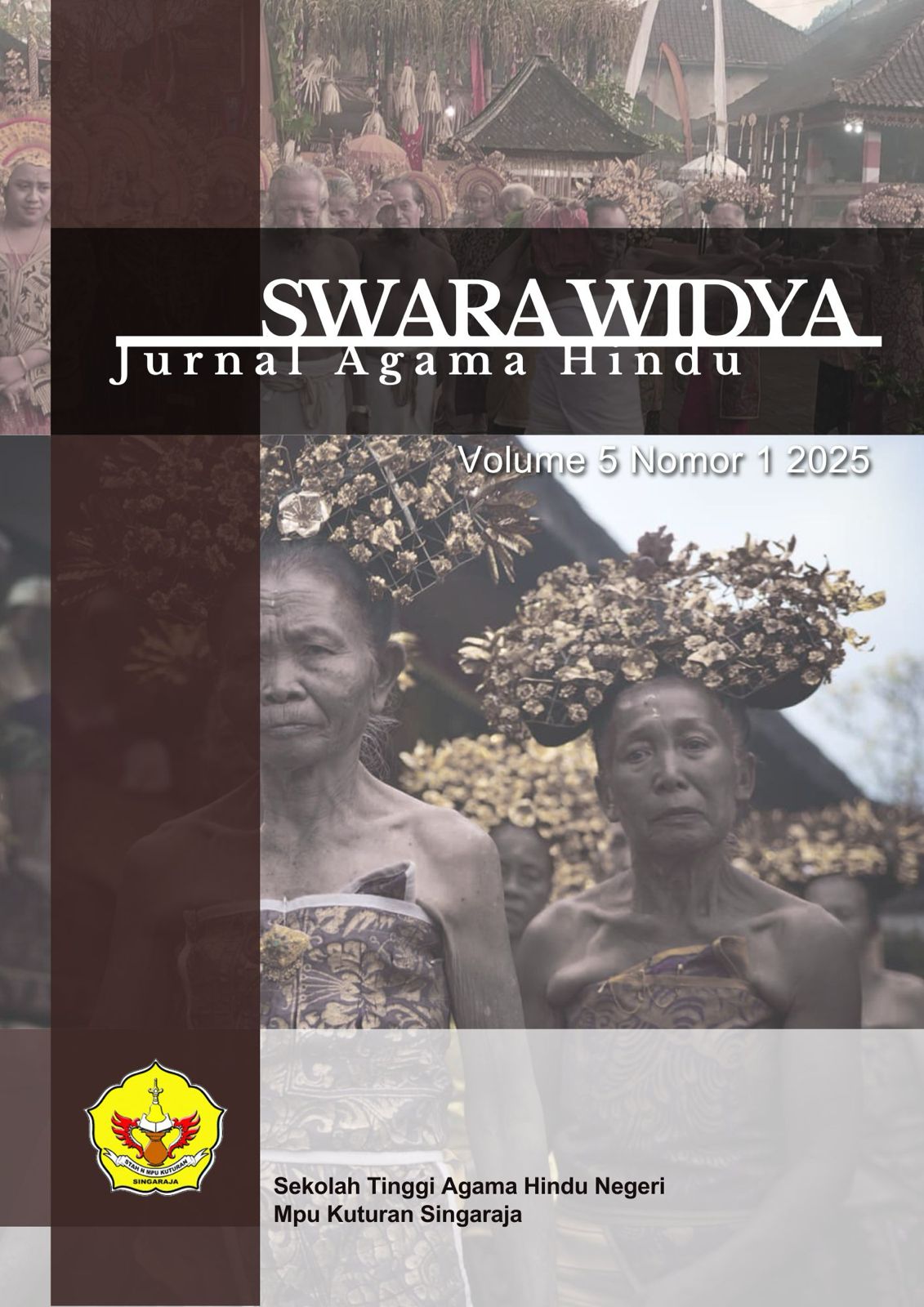IMPLEMENTASI AJARAN KALĔPASAN DALAM LONTAR WIKṢU PUNGU DI KECAMATAN DENPASAR TIMUR
Keywords:
Kalĕpasan Teachings, Wikṣu PunguAbstract
Hindu teachings believe in mokṣa as the main and final goal of life. Lontar Wikṣu Pungu as one of the Hindu cultural heritage texts tells the story of the moral advice of a priest from the bhikṣuka āśrama stage who had reached a liberated state called Wikṣu Pungu to his student Sang Aji Saji. His advice contains the main teachings of Hinduism which include the three basic frameworks in the form of tattwa, suśīla, and ācara. This text also teaches the importance of achieving mokṣa or kalĕpasan as the union of ātman and Brahman (God) through the implementation of asceticism. The results of the research show that Lontar Wikṣu Pungu contains the teachings of God, rasa tattwa, daśa śīla, and śarīra ākṣara, each of which contains Godly, spiritual, moral and religious values. Its implementation is found in the kasulingihan practice which emphasizes the implementation of asceticism through the means of puja, Veda, mantra, yoga, samādhi, dhyāna, japa siddhi and sandhi ajñāna as an effort to realize the essence of the true self which is free from all impurities to achieve a single consciousness with Lord. Through the practice of asceticism, it will encourage spiritual development and knowledge of the nature of the self in achieving the goal of kalĕpasan.

